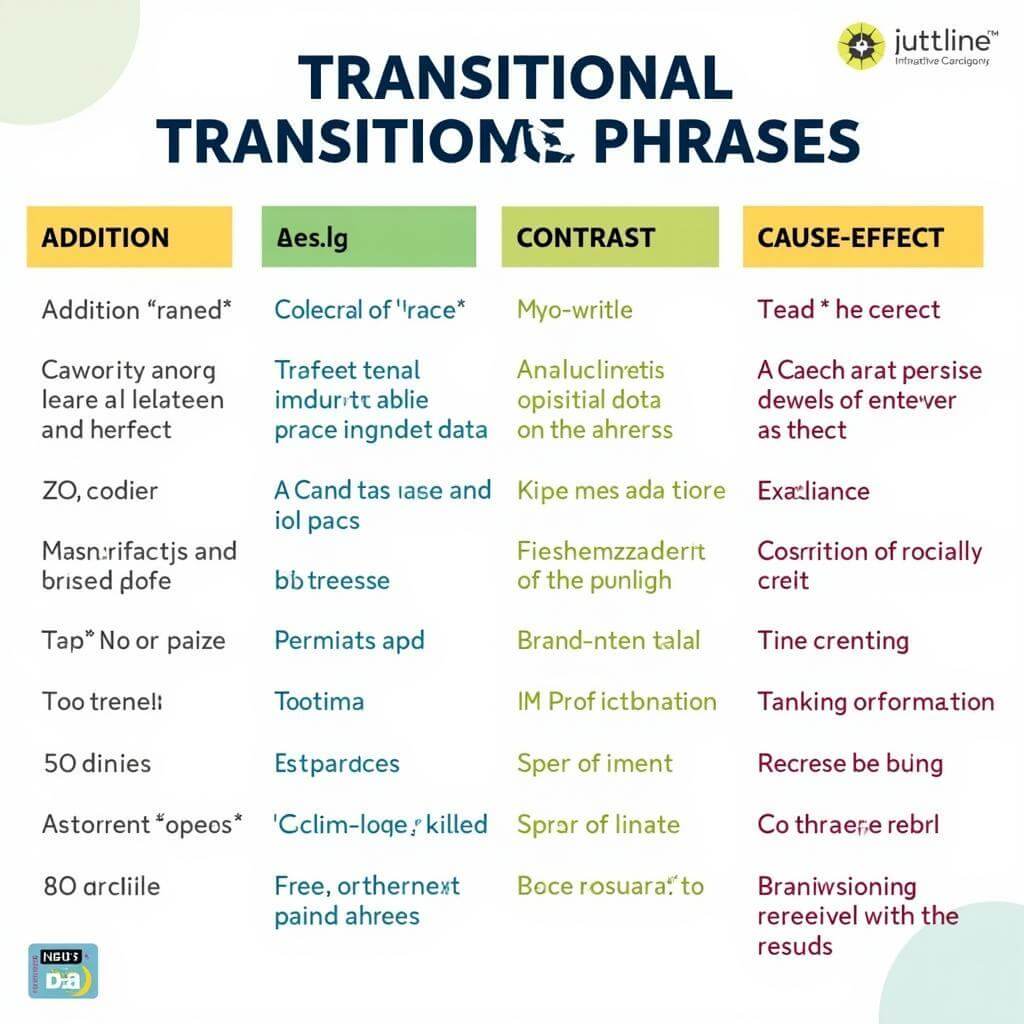Effective writing in IELTS demands a balanced approach to sentence structure and cohesion. One common pitfall many test-takers face is the overuse of conjunctions, which can lead to convoluted sentences and unclear ideas. This article will explore strategies for avoiding the excessive use of conjunctions in IELTS writing tasks, helping you craft more concise and impactful essays.
Understanding the Role of Conjunctions in IELTS Writing
Conjunctions play a crucial role in connecting ideas and creating coherence in your writing. However, when overused, they can have the opposite effect, making your essay difficult to follow. It’s essential to strike a balance between using conjunctions effectively and allowing your ideas to flow naturally.
Common Pitfalls of Overusing Conjunctions
- Overly complex sentences
- Reduced clarity of ideas
- Redundancy in expression
- Lower band scores due to lack of coherence
To avoid these issues, it’s crucial to develop a more nuanced approach to sentence construction and idea presentation.
Strategies for Reducing Conjunction Overuse
1. Vary Your Sentence Structure
One of the most effective ways to avoid overusing conjunctions is to diversify your sentence structures. Instead of relying heavily on compound or complex sentences, mix in simple sentences to create a more dynamic flow.
“The key to a high-scoring IELTS essay is not just about connecting ideas, but presenting them clearly and concisely,” says Dr. Emily Johnson, IELTS examiner and language expert.
How to use relative clauses correctly can significantly enhance your ability to vary sentence structures without overrelying on conjunctions.
2. Use Punctuation Effectively
Proper punctuation can often replace the need for conjunctions, especially in cases where ideas are closely related.
- Use semicolons to join related independent clauses
- Employ colons to introduce lists or explanations
- Utilize em dashes for emphasis or to set off parenthetical information
Using proper punctuation in essays is crucial for maintaining clarity while reducing conjunction overuse.
3. Employ Transitional Phrases
Transitional phrases can serve as excellent alternatives to conjunctions, providing smoother connections between ideas without cluttering your sentences.
Examples of effective transitional phrases:
- Moreover
- In addition
- Furthermore
- Consequently
- As a result
Using transitional phrases naturally can significantly improve the flow and coherence of your writing.

4. Break Down Complex Ideas
Instead of trying to connect multiple ideas in a single sentence with conjunctions, consider breaking them down into separate, more focused sentences.
Before:
“The government should invest in public transportation because it reduces traffic congestion and air pollution, and it provides affordable mobility options for low-income citizens, while also creating jobs in the transportation sector.”
After:
“The government should invest in public transportation for several reasons. Firstly, it reduces traffic congestion and air pollution. Secondly, it provides affordable mobility options for low-income citizens. Additionally, such investments create jobs in the transportation sector.”
5. Use Implied Relationships
Sometimes, the relationship between ideas is clear enough without explicitly stating it through conjunctions. Trust your reader to make logical connections.
Example:
Instead of: “The company increased its marketing budget, and as a result, sales improved.”
Try: “The company increased its marketing budget. Sales improved significantly in the following quarter.”
Practical Exercises to Improve Your Writing
- Sentence Combining: Take three simple sentences and combine them into one without using conjunctions.
- Conjunction Reduction: Review a paragraph from your previous IELTS essay and try to reduce the number of conjunctions by half.
- Transitional Phrase Practice: Rewrite a set of connected sentences using transitional phrases instead of conjunctions.
Avoiding simple sentence overuse in writing can help you balance your approach when reducing conjunctions.
The Impact on IELTS Scores
Mastering the art of avoiding conjunction overuse can significantly impact your IELTS Writing score. Examiners look for:
- Coherence and cohesion
- Lexical resource
- Grammatical range and accuracy
By refining your use of conjunctions, you demonstrate a sophisticated command of English, potentially boosting your band score.
“Candidates who can express complex ideas clearly, without relying excessively on conjunctions, often achieve higher band scores in IELTS Writing,” notes Professor Mark Thompson, IELTS researcher and trainer.
Conclusion
Avoiding the overuse of conjunctions in IELTS Writing is a skill that requires practice and awareness. By implementing the strategies discussed – varying sentence structures, using punctuation effectively, employing transitional phrases, breaking down complex ideas, and utilizing implied relationships – you can enhance the clarity and impact of your writing. Remember, the goal is not to eliminate conjunctions entirely, but to use them judiciously for maximum effect.
As you prepare for your IELTS exam, focus on refining your writing style to achieve a balance between coherence and conciseness. With consistent practice and attention to these techniques, you’ll be well on your way to crafting essays that not only meet the IELTS criteria but also effectively communicate your ideas.
FAQ
How many conjunctions should I use in an IELTS essay?
There’s no fixed number, but aim for quality over quantity. Use conjunctions when necessary to connect ideas logically, but don’t force them into every sentence.
Can using too few conjunctions negatively affect my score?
Yes, it can. A complete lack of conjunctions might make your writing seem choppy or disconnected. The key is balance and appropriate use.
Are there any conjunctions I should avoid in formal IELTS Writing?
While no conjunctions are strictly forbidden, try to limit the use of very informal conjunctions like “and” or “but” at the beginning of sentences in Task 2 essays.
How can I practice reducing conjunction overuse?
Try rewriting your practice essays, focusing on using fewer conjunctions. Ask a tutor or peer to review your work and highlight areas where conjunctions might be overused.
Will reducing conjunctions make my writing less sophisticated?
Not at all. Sophisticated writing is clear, concise, and varied. Reducing unnecessary conjunctions often leads to more precise and impactful expression.
Can transitional phrases replace all conjunctions?
While transitional phrases are useful, they can’t replace all conjunctions. Use a mix of both for the most natural and effective writing style.